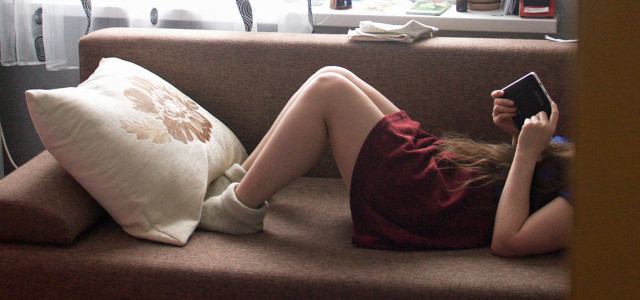Are you wondering how to start journaling and keep the habit? Journals are powerful tools for a mindful and happy life. Here are eight useful and easy tips for getting started.
Journaling is a great tool for becoming more mindful. It can help you clear your mind, reduce anxiety and gain control of your emotions by processing them in a healthy way. Of course, introducing a new habit can be hard, especially if the habit is about looking inward and reflecting. But there are some easy tips you can follow to introduce journaling into your routine. We created a list of eight steps for how to start journaling and how to make it a habit.
1. How to Start Journaling? Understand Why It’s So Powerful
When you first start journaling, it’s helpful to understand the benefits of journaling so that you’re more motivated to stick to it. Journaling can be beneficial if you want to clear your mind of any feelings or thoughts you have. Especially when you’re easily overwhelmed by emotions or tend to overthink, writing a journal allows you to let go of everything that doesn’t serve your well-being. It’s a powerful tool when you don’t necessarily want to share your thoughts with someone else, but you still want to process these thoughts.
It can also help you to reduce stress and cope with depression as you can better identify triggers for negative emotions and give yourself an opportunity for positive self-talk. And even if you don’t notice the benefits from the start, you’ll be glad to have this written record of what was important to you at a specific point in time.
2. Get a Nice Notebook and Pen

Have you ever noticed that you enjoy working out more when you’re wearing a cute workout set? It’s the same when you’re starting to journal. Having nice stationery that you enjoy using might make journaling easier in the beginning. If you have an empty notebook lying around at home, even better! Just make sure you haven’t used it for any other purpose before. This notebook is only supposed to serve as your journal.
It’s best to use a blank notebook (like this one from Northbooks, also available on Amazon**) or one that’s lightly dotted instead of one that has lines. That way, you won’t be restricted by the layout and can start to visualize your thoughts and feelings in any way you come up with — “pros & cons”-list, diagram, drawing? Or maybe you want to start bullet journaling?
3. Don’t Journal on Your Computer or Phone
It’s important to physically write in a journal with pen and paper. Typing into your computer or phone doesn’t give you enough time to reflect on the thoughts that come up while you’re writing. Also, keep in mind that you use your computer and phone on so many different occasions. By keeping a physical notebook, you’ll make sure to only use it for the purpose of journaling.
If you’re a creative person, it can be quite helpful to visualize your ideas in different forms, such as collages, mood boards, or drawings. A notebook allows you to let your mind flow freely and write or draw whatever enters your mind.
4. Journal at the Same Time Everyday
To maximize the benefits of journaling, it’s recommendable to journal either in the mornings or at night. Having a set morning routine makes your start into the day much easier and gives you the feeling that you’ve already done something for yourself before working all day. Especially when you combine journaling with other mindful practices like reading, meditating, or doing yoga, it can be a powerful tool to become more conscious and grounded.
Another appropriate opportunity for journaling could be at night, right before you sleep. With a good nighttime routine, you empty your mind of all thoughts that might keep you up at night and can clear your mind to help you sleep better. Of course, there isn’t really right or wrong. This is all about you. So if you enjoy journaling during your lunch break, you should do that!
5. Learn How to Start Journaling Somewhere Without Distractions



Find a quiet space that you feel safe in. This should be a space where you won’t get interrupted or distracted. It could be your bed, an armchair, a bench in a local park, or your garden. After journaling in the same spot for a while, that space will eventually become your safe haven to clear your mind and reflect. Whenever you enter that physical space, it will allow you to enter a headspace that is solely dedicated to self-care, awareness, and reflection.
More on that: How a Digital Detox Can Cure Your Technology Addiction
Apart from human distractions, make sure not to tempt yourself by having your phone or laptop nearby. We’re all quick to jump to our phones when there’s a notification popping up. So ideally, make sure to mute your devices and put them aside.
6. Write Down Anything That Crosses Your Mind
You might ask yourself what you’ll write down each day. The answer is to write down anything and everything that enters your mind. It doesn’t have to look pretty or sound like an autobiographical novel. It will just be your stream of consciousness. This journal is your tool, so don’t try to make it look like you would imagine someone journaling in a movie.
There will be days when nothing “journal-worthy” is going on, and you might not know what to write down. On those days, it could be worth thinking about what makes you grateful or what you want to work on in the near future. A future-self journal can be a great tool to hold yourself accountable for plans or projects to see how they develop in the future. Another easy trick to help you get started is relying on journal writing prompts which are meant to entice further reflection.
If you believe in manifestation, a journal can be an impactful tool to write down positive affirmations of what you wish to happen. Affirmations are essentially short sentences written in the present tense about what you want to come true. You phrase them as if they were already true (for example: “I am calm“ or “I am flexible“).
7. How to Start Journaling? Create a Routine



Journaling is most efficient if you do it every day. That way, it becomes part of your routine rather than something you only turn to when you’re already in a particularly positive or negative mood. Writing on days when you don’t feel like it could allow you to think on a broader horizon and include affirmations, visions, or memories. Or could it be that you don’t feel like writing but have a creative idea of how to visualize something in pictures? If you really can’t pick yourself up to do it, that’s okay, too. Journaling is supposed to be something you enjoy and shouldn’t feel like a draining assignment, so find the type of journaling that you enjoy most.
Also be sure to include the date of each journal entry at the top, especially if you use your journal to write about long-term projects or relationships. In the end, it will be really interesting to see when you started doubting something or when exactly an idea started blossoming.
8. Share Your Journal if You Want To
Once you’ve learned how to start journaling, whether you want to share your journal with people or keep the contents personal is up to you. Sharing your journal makes sense if you don’t always find the right words when talking to a friend, family member, or partner. That way, the journal might help clear arguments and let someone know your feelings and thoughts without interruptions. If you go to therapy, bringing your journal might also be helpful for those days when you don’t know what to talk about.
But generally, your journal is dedicated to yourself. It allows you to be mindful and live in the present while also allowing you to reflect on the past and the future. Free yourself from any restrictions; it doesn’t have to be pretty, well-written, or grammatically correct all the time — this practice is only for you and is meant to be a personal and enjoyable experience. Experiment with different techniques and styles until you find what works best for you.
Read more:
- The Miracle Morning: Principles & Examples
- Desk Organization Ideas: Minimalist Tricks for Your (Home) Office
- 6 Best Meditation Apps to Calm Your Mind
Important Information regarding Health-related Topics.
** Links to retailers marked with ** or underlined orange are partially partner links: If you buy here, you actively support Utopia.org, because we will receive a small part of the sales proceeds. More info.Do you like this post?








